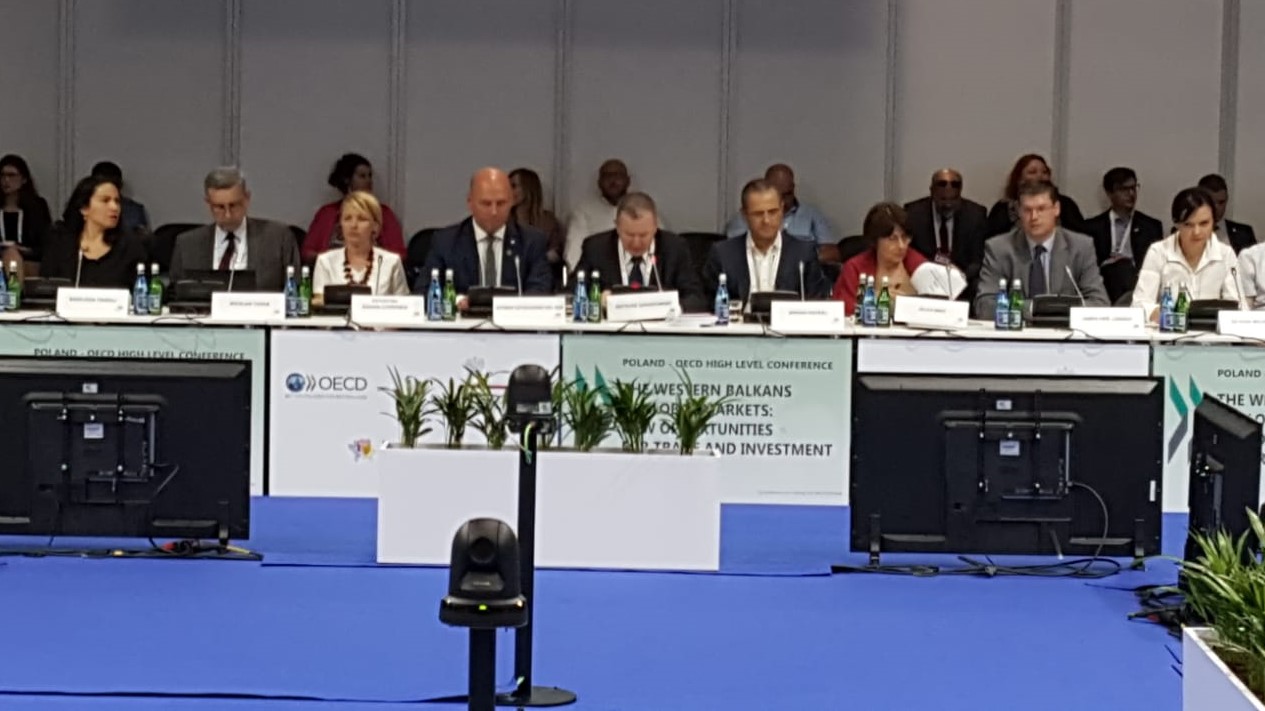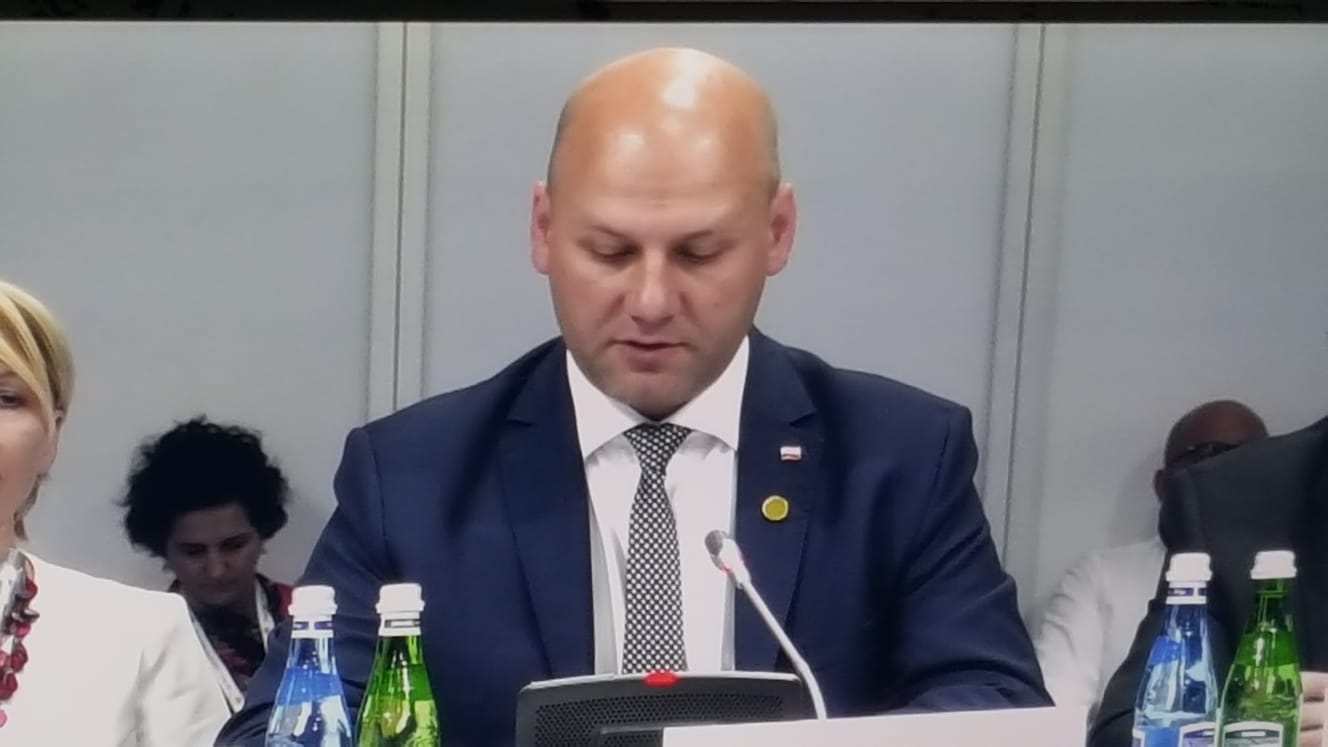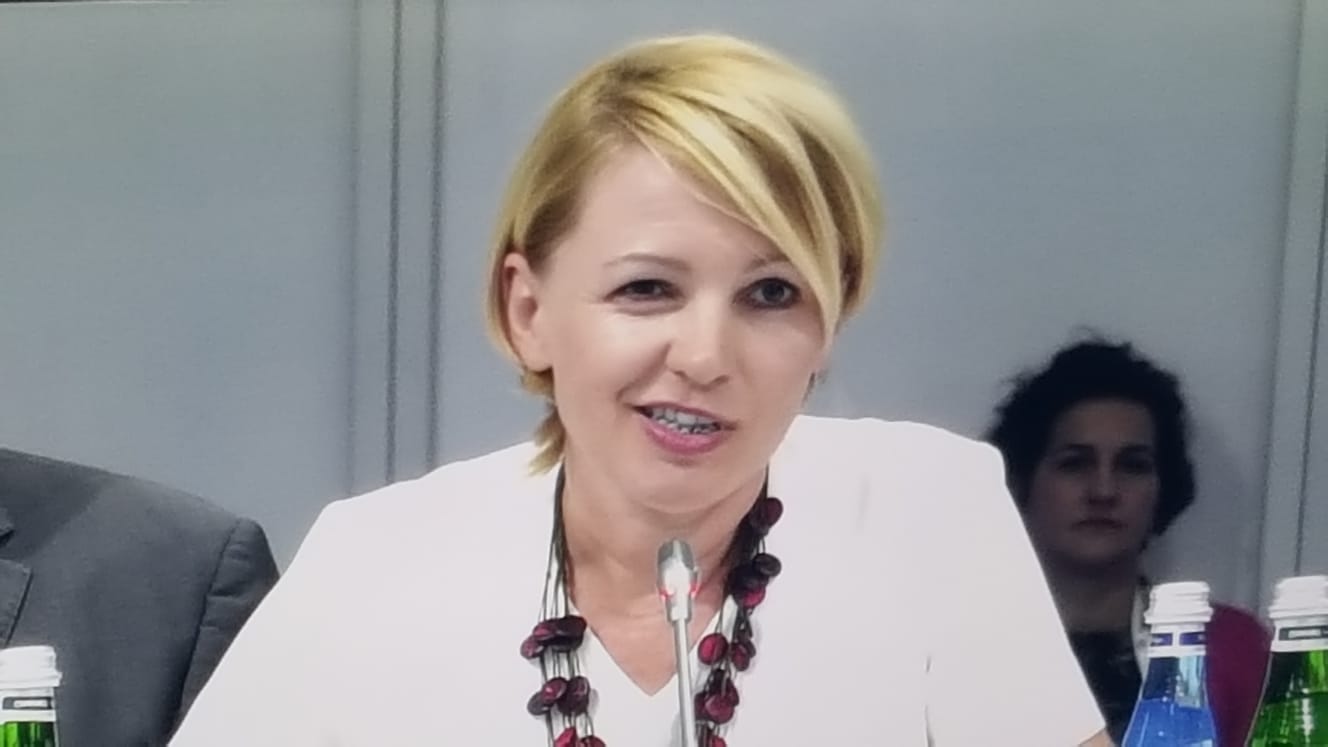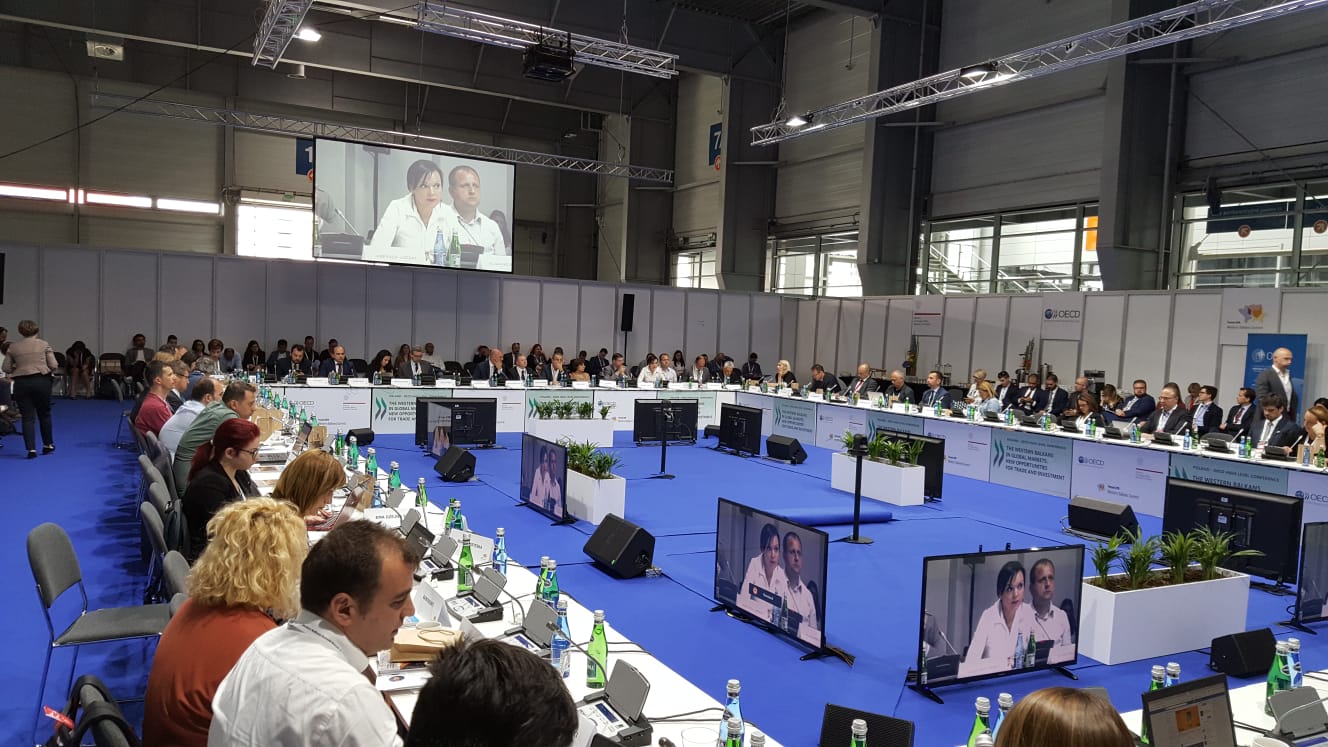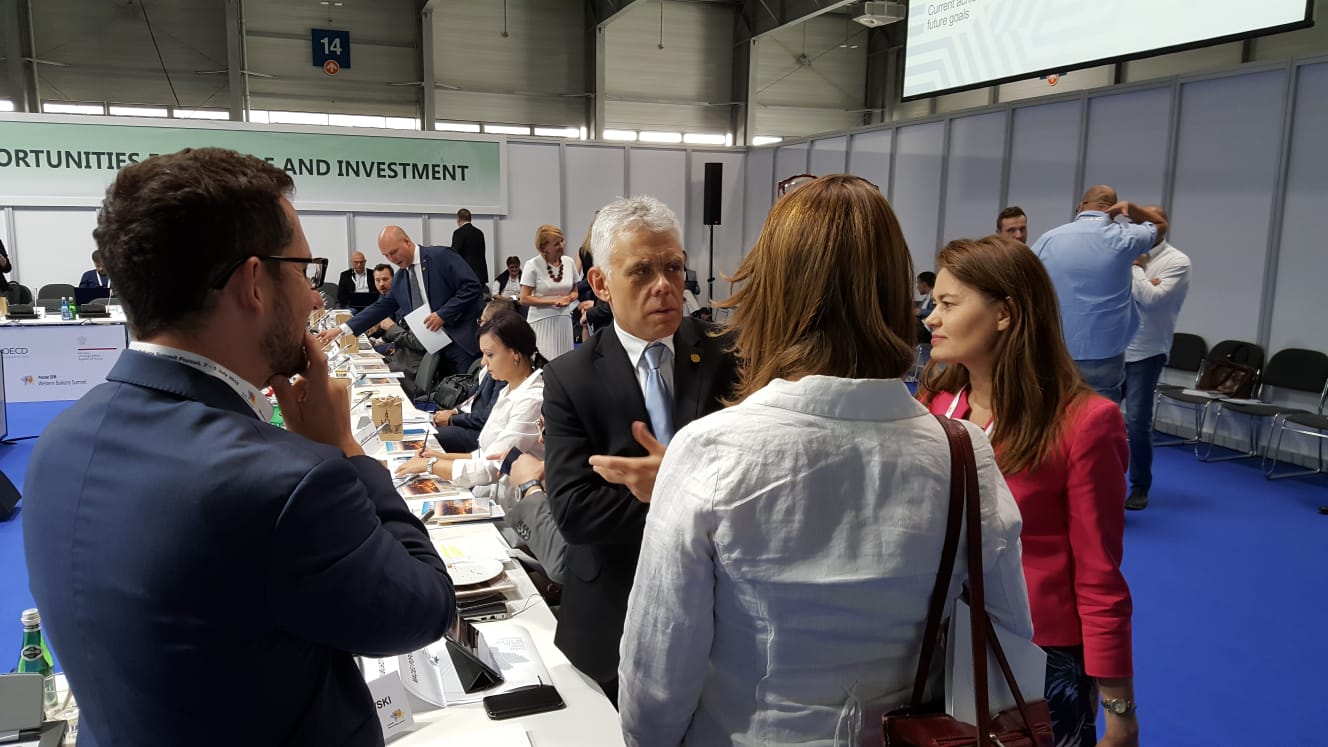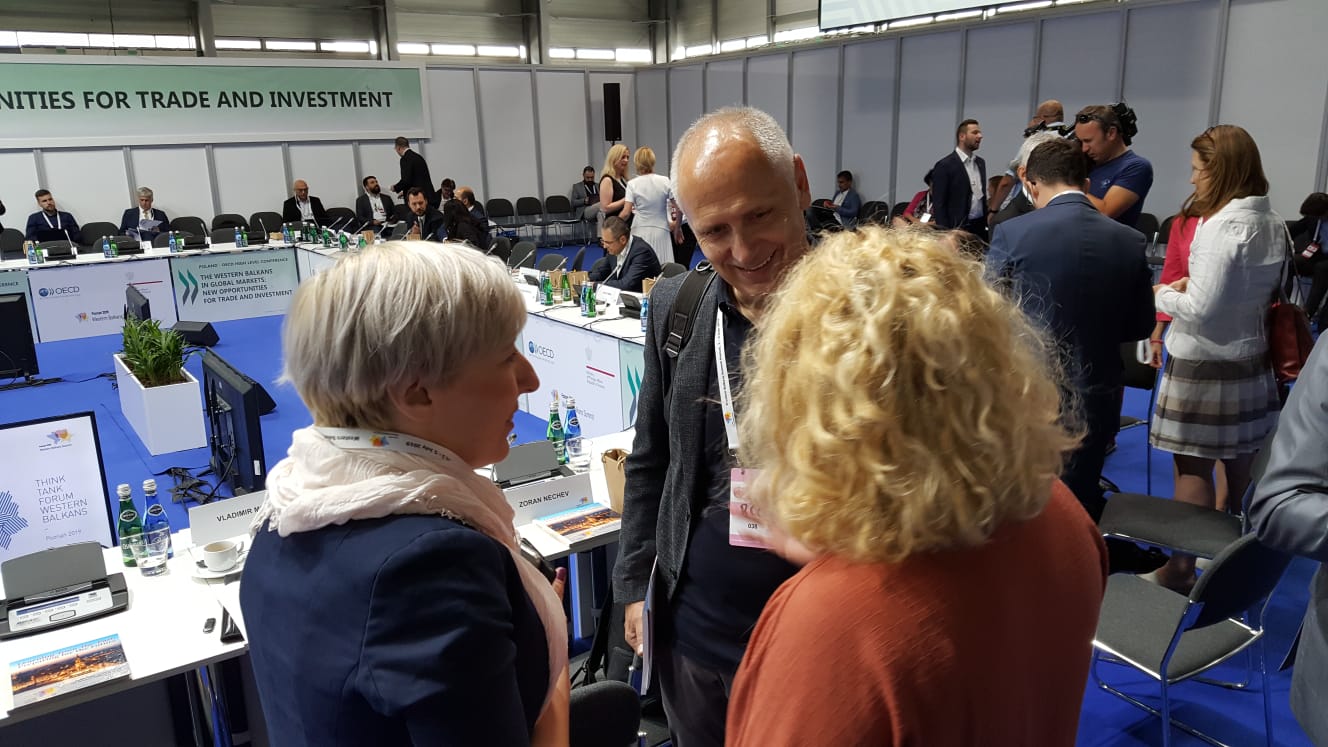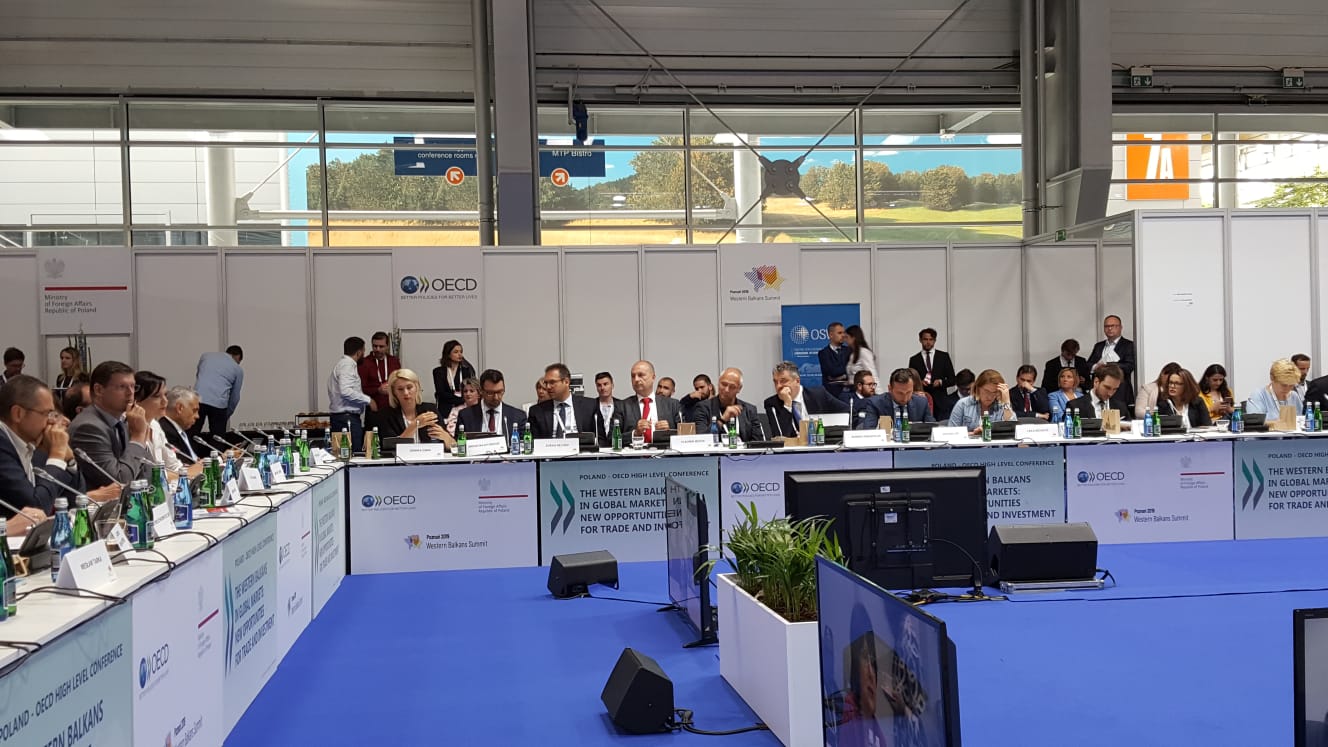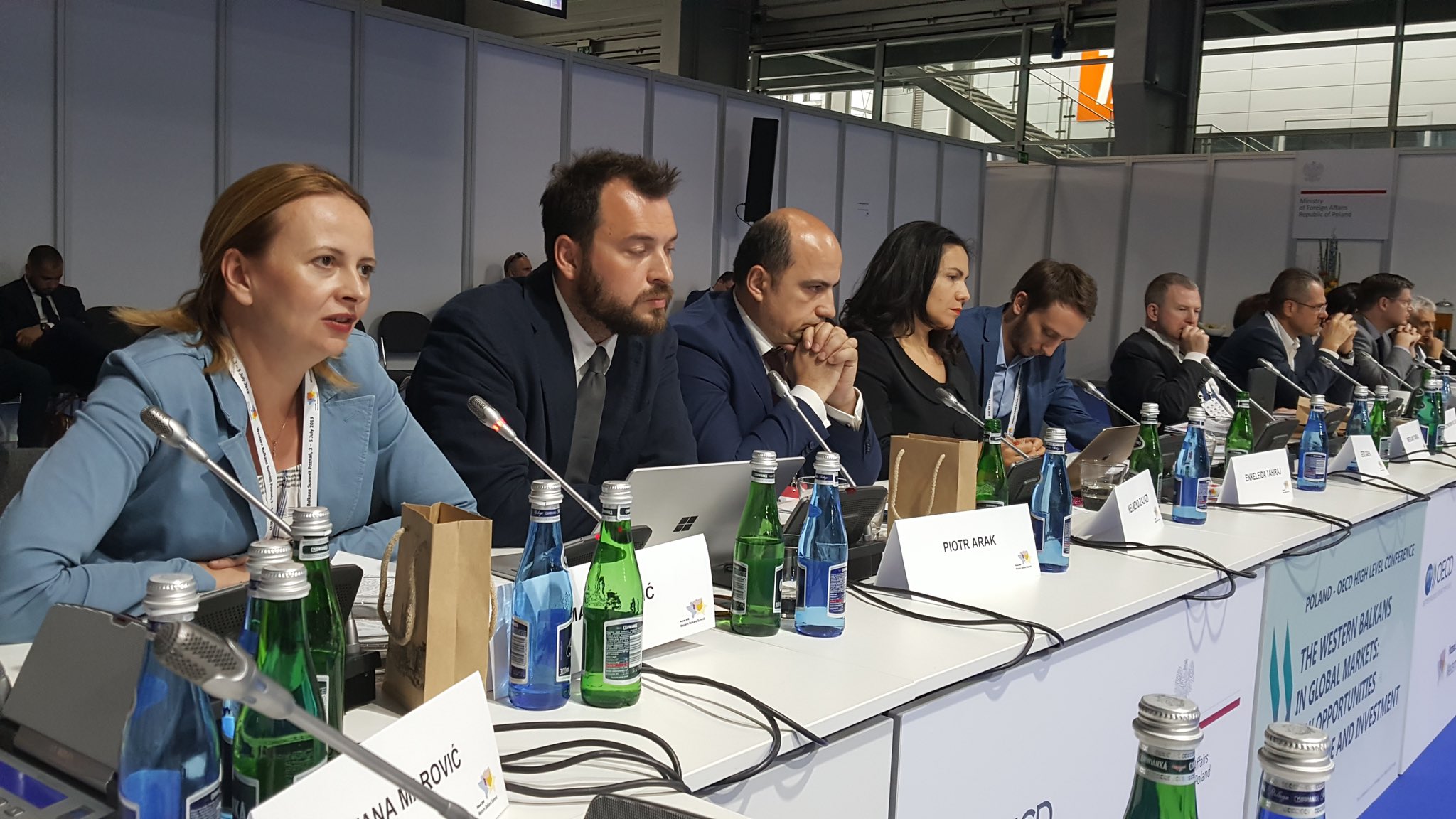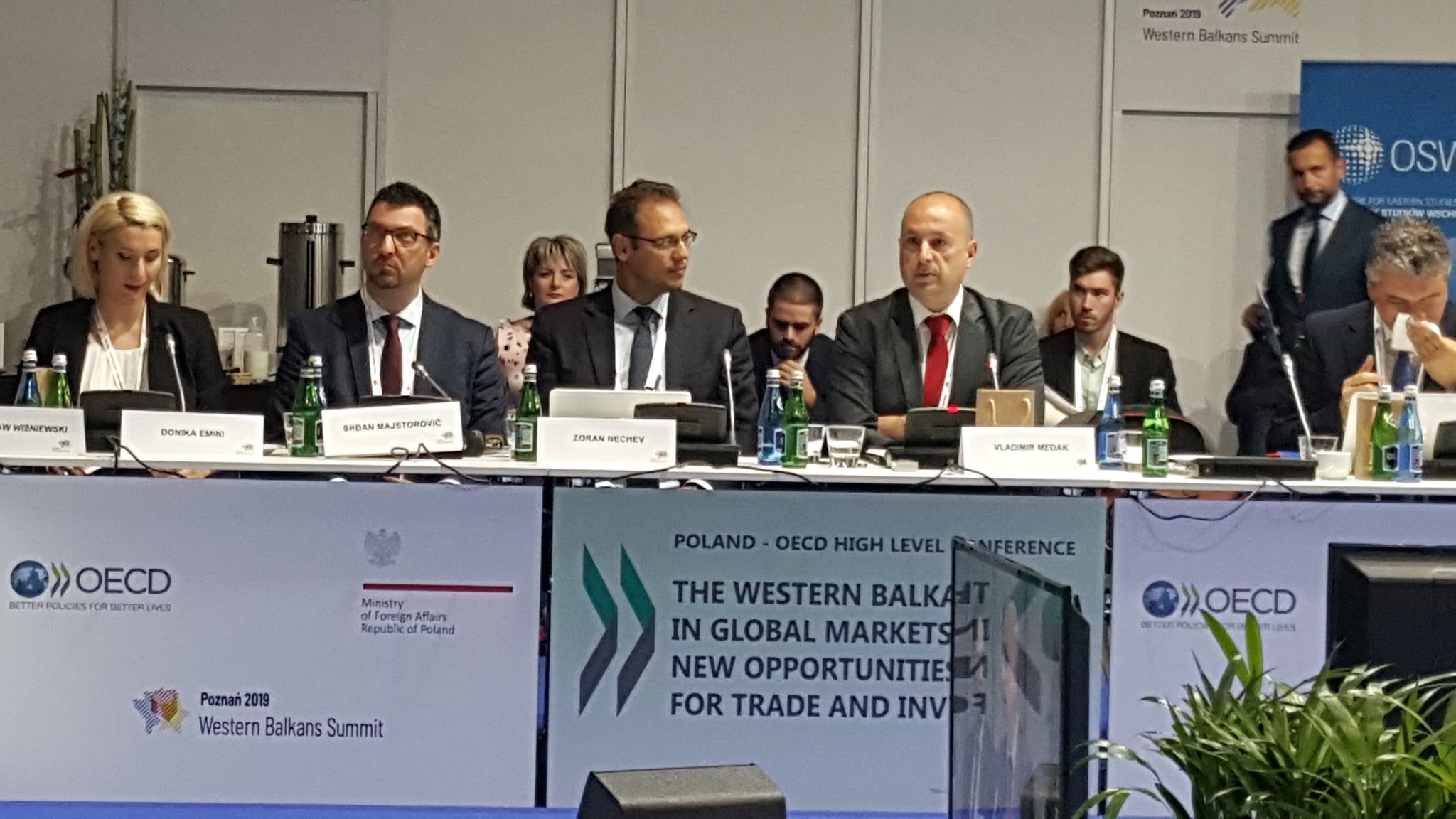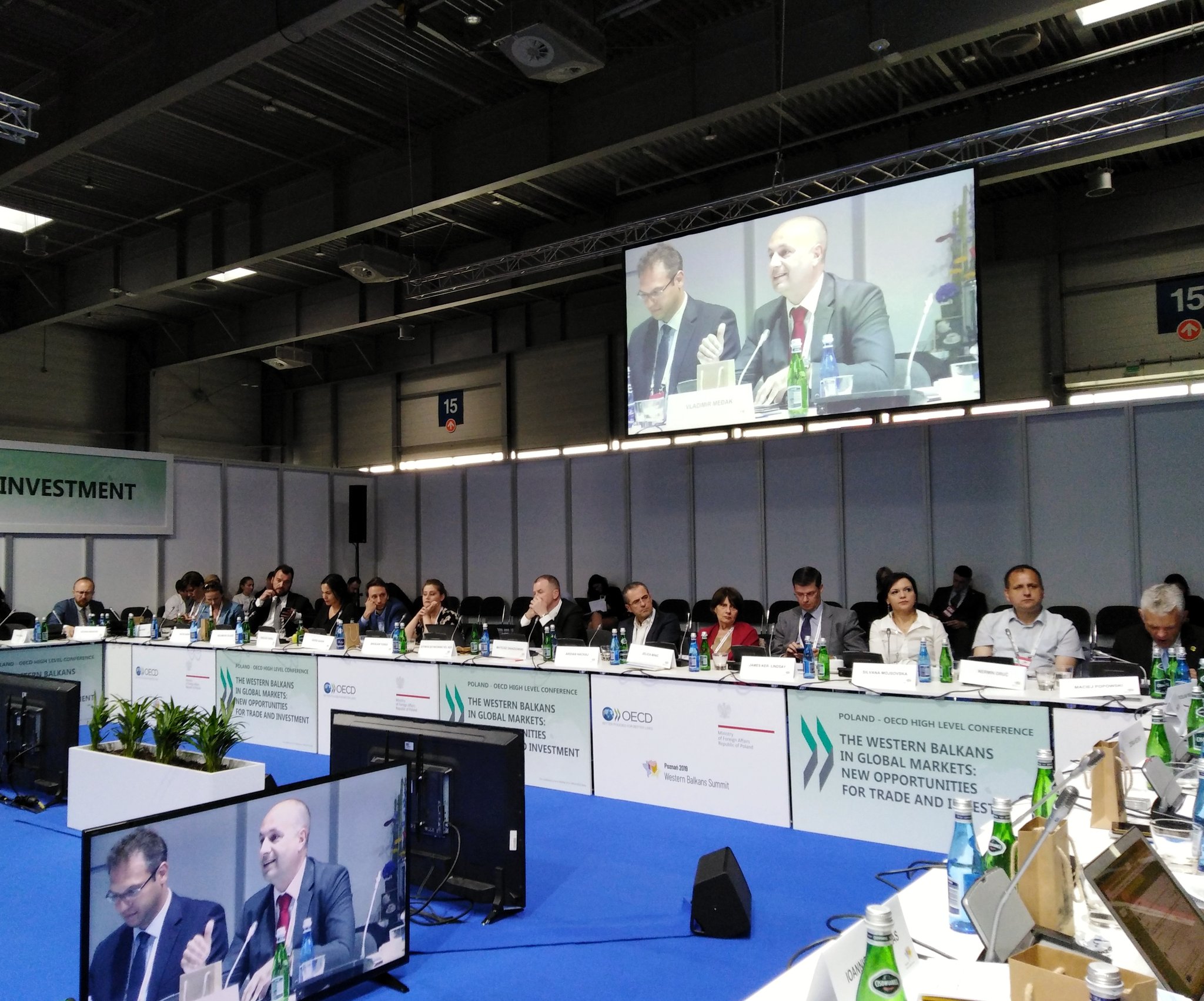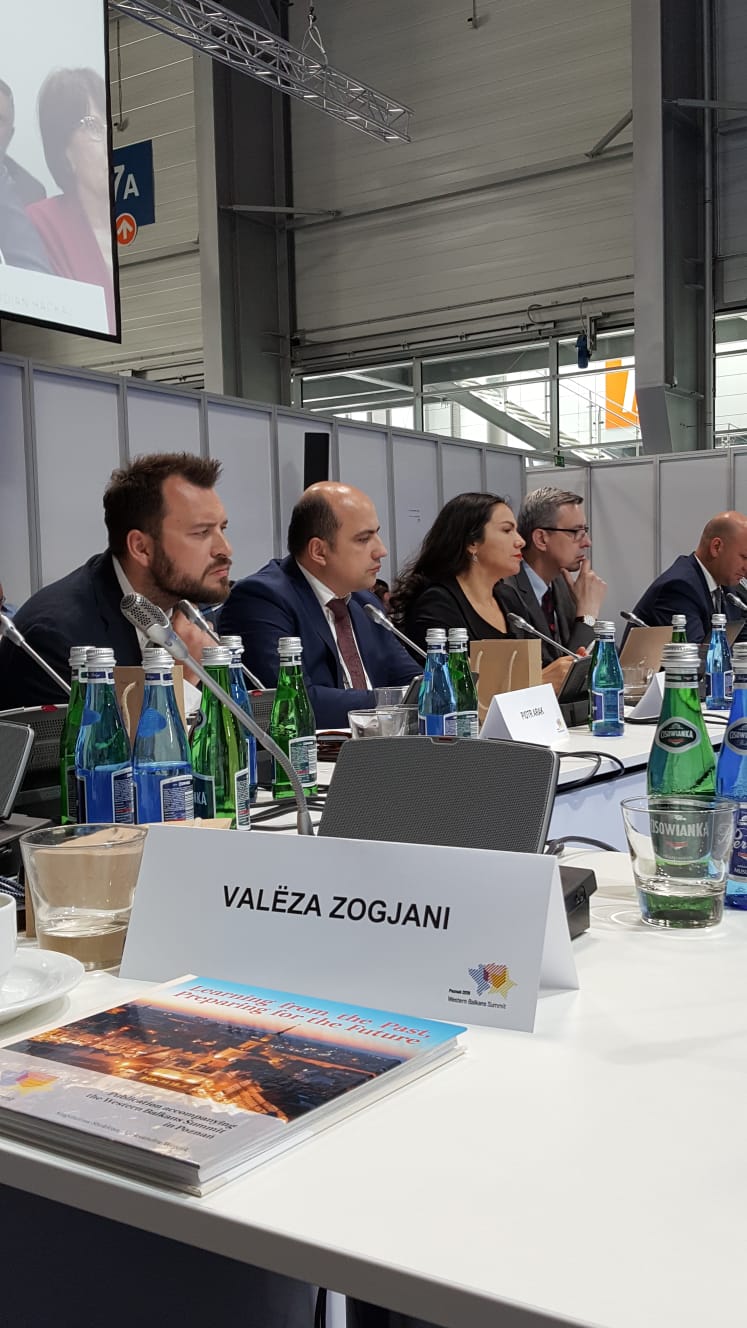On July 3rd the second edition of the Think Tank Forum was held in Poznań. This format of experts’ meetings from the Western Balkans and the EU was initiated during the Polish presidency in the Berlin process. The present event is co-organized by the Ministry of Foreign Affairs of the Republic of Poland and the Center for Eastern Studies.
Expert meetings facilitate monitoring the commitments of the Balkan states, preparing recommendations for the authorities and developing joint proposals. Above all, however, forum creates a valuable space for the exchange of experiences and information.
The first Think Tank Forum was held on 13-14 May in Skopje. The present one accompanied the Western Balkans Summit in Poznań.
"I am very glad that Western Balkans Summit in Poznań begins with Think Tank Forum. A good expert dialogue and good atmosphere cooperation are the showcases of the potential of Western Balkans. In OSW we are convinced that there is a great potential for the think tank cooperation within the Berlin Process" - said Mateusz Gniazdowski, Deputy Director of the Center for Eastern Studies, welcoming more than a hundred guests from over 15 countries. Szymon Szynkowski vel Sęk, the Deputy Minister of Foreign Affairs of the Republic of Poland and the Government Plenipotentiary for the Western Balkans Summit, who was formally opening the Forum, also referred to the idea of cooperation. "The future of Western Balkans is Europan Union. In Poland we strongly believe that without Western Balkans EU is not a complete project" - he stressed. The opening was also attended by the deputy of the president of Poznań, Katarzyna Kierzek-Koperska.
The first of the three panels of the current Think Tank Forum, titled "Connecting the dots", wasdedicated to improving regional cooperation and - in accordance with the title - "connecting the dots", institutions and people in the Western Balkan countries, began at 2:30 p.m. An hour-long debate, in which five experts from Albania, Bosnia and Herzegovina, Northern Macedonia and Serbia take part, is moderated by prof. James Ker-Lindsay, lecturer at the London School of Economics, author of the expert’s best-seller "Civil Society and Transition in the Western Balkans". “What more can be done to increase connectivity?” – he asked dramatically, opening the panel. Panelists praised the achievements within the framework of the Connectivity Agenda, which focuses on the expansion of infrastructural, energy and teleinformation connections as well as regional cooperation. According to the experts, an important result of the Berlin process was to convinceWestern Balkan states to develop regional cooperation and joint resolution of cross-border problems.
Participants of the next panel ("Growing together") debated one of the most important issues: the improvement of the economic and social situation in the Western Balkans and thedevelopment needs of the entire region. Can the most pressing issues - persistent high unemployment and migration of young people, the rule of law deficit, growing distance in relation to the European Union countries - be solved with the help of EU’s policy instruments?
The debate, attended by Maja Bobić (EFB Civic Society Forum), Gersi Gashi (Democracy for Development), Jovana Marović (Politikon Network), Enkeleida Tahiraj (London School of Economics) and Kelmend Zajazi (NALAS) was moderated by Piotr Arak, director of Polish Institute of Economics.
Panelists formulated crucial recommendations for political leaders: Maja Bobić and Kelmend Zajazi stressed the role of local governments and the need to include them in the process of integration and revitalization of public services at the local level; Enkeleida Taharaj called for the development of research tools and framework to measure and survey poverty at the regional level.
What are the challenges ahead for the Western Balkans region? That was the main question during the third panel – well, and the title of the panel itself. The participants of the forum had to face the reality: as some European politicians prefer to focus on reform of the European Union instead of enlargement policy, the opposition to further enlargement is present. How to make the EU’s approach towards the Western Balkans more effective and to advocate the concept of enlargement as such?
Vladimir Međak (European Movement), Srđan Majstorović (European Policy Centre), Donika Emini (Kosovar Centre for Security Studies) and Maciej Popowski (Deputy Director-General for Neighbourhood Policy and Enlargement Negotiations, European Commision) were coining the answers and recommendations; the debate was moderated by Zoran Nechev from the Institute for Democracy Societas Civilis – Skopje. The experts positively commented on the “Common Position” presented by 13 member states, adopted on the initiative of Poland, which supports the enlargement policy. The correction of Balkan image within EU is much needed – claimed the panelists.
More information: Think Tank Forum – cooperation of expert organisations in the Berlin Process
